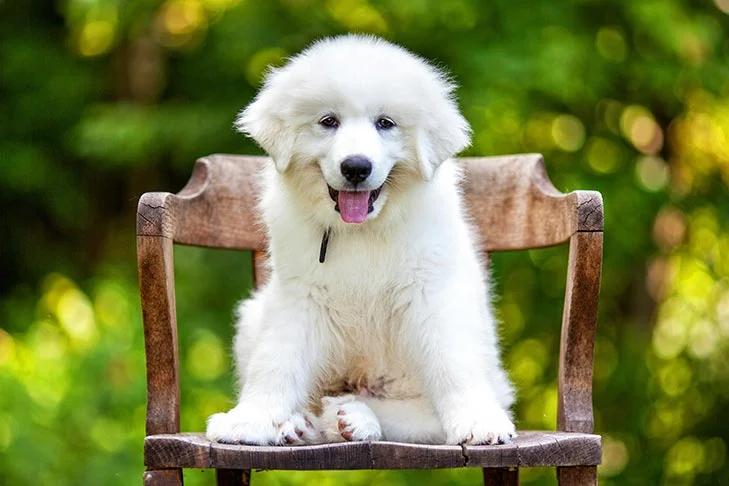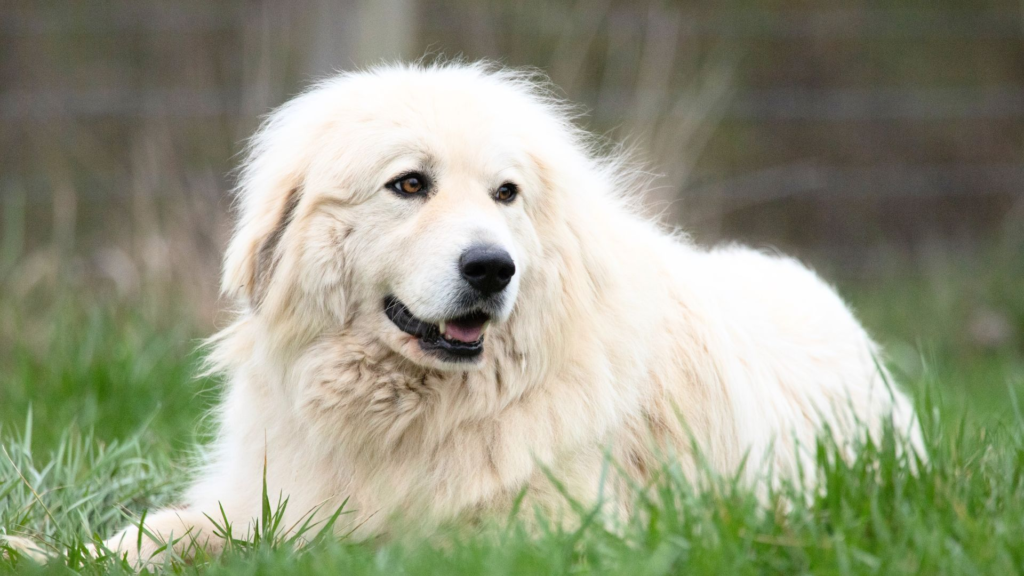Great Pyrenees Behavior Problems

Great Pyrenees Behavior Problems:- The Great Pyrenees is a majestic and powerful breed, known for its strong-willed nature and protective instincts. According to the AKC Standard, this dog is “strong-willed, independent, and somewhat reserved, yet attentive, fearless, and loyal to his charges – both human and animal.” With a calm and composed demeanor, the Great Pyrenees presents a regal, kind expression that reflects its serious nature.

Temperament and Lifestyle
Great Pyrenees Behavior Problems:- As adults, the Great Pyrenees are a calm and quiet presence indoors, making them suitable for a relatively peaceful household. They are content with long daily walks and enjoy regular opportunities to stretch out and move. Though they are not particularly hyperactive, these dogs still require ample exercise to stay healthy and happy. They especially love romping in the snow, and engaging in purposeful activities like pulling a cart or carrying a backpack can provide them with a sense of fulfillment.
Because of their aloof nature, Great Pyrenees can be reserved around strangers. Early socialization is crucial to help them grow comfortable with a variety of people and situations. Without this exposure, they may become overly protective or anxious in unfamiliar environments. This natural protectiveness extends to their family members and pets. They are generally patient with children in the household but can become overprotective if they perceive rough play as a threat to their family.
Guardian Instincts and Independence
Great Pyrenees Behavior Problems:- These protective instincts are deeply ingrained in the Great Pyrenees, stemming from their historical role as livestock guardians. They were bred to watch over flocks, often making independent decisions about whether to welcome or ward off intruders. This background gives them a sense of independence and self-reliance. However, it can also lead to a strong-willed personality that requires clear leadership from their human companions.

Without a firm hand and consistent training, the Great Pyrenees may rely on their own judgment rather than following commands. Unlike more obedient breeds like the Golden Retriever, these dogs are not inherently eager to please. Owners must establish themselves as the clear leader, setting boundaries and expectations from an early age to foster a well-behaved and cooperative pet.
Barking Behavior
One characteristic of the Great Pyrenees that cannot be ignored is their deep, impressive bark. These dogs are vigilant, especially at night, and may bark at the slightest hint of potential danger. While their barking can be reassuring in a protective capacity, it can become excessive if not properly managed. Teaching them commands like “quiet” can help curb unnecessary barking, but understanding that this behavior is part of their guardian nature is essential.
Why Do Great Pyrenees Become Aggressive?
Great Pyrenees Behavior Problems:- Though not inherently aggressive, the Great Pyrenees can display aggressive behaviors under certain conditions. Their protective nature means they may react strongly to perceived threats, especially if they feel their family or territory is in danger. A lack of socialization or training can exacerbate this tendency, leading them to misinterpret innocent encounters as threats.
Aggression can also stem from fear, frustration, or confusion, especially if the dog is not accustomed to various environments, people, or animals. Early exposure to a wide range of experiences can help them develop confidence and reduce the likelihood of aggressive outbursts.
Managing Aggressive Behavior
To prevent or address aggression in the Great Pyrenees, early training and socialization are key. Exposing them to different people, animals, and environments during puppyhood can help shape a well-rounded and confident dog. Basic commands like sit, stay, come, leave it, and drop are essential to establishing a foundation for good behavior.
Clear rules and boundaries should be set early on to reinforce the owner’s role as the leader. Discouraging behaviors like jumping on people, pulling on the leash, or showing signs of aggression is important for establishing control. If aggressive tendencies persist or escalate, seeking professional help from a veterinarian, behaviorist, or trainer may be necessary. These professionals can identify underlying causes and create a tailored behavior modification plan, possibly involving medication in severe cases.
Common Behavioral Issues
While the Great Pyrenees is a wonderful breed, some behavioral problems are more common due to their unique instincts and characteristics. Understanding these issues can help owners better manage their pets.
1. Aggression Toward Strangers: Given their protective instincts, Great Pyrenees may become aggressive toward unfamiliar people. Early socialization is the most effective way to counter this. By introducing them to various people and situations during their formative months, they can learn to distinguish between actual threats and harmless interactions.

2. Separation Anxiety: Great Pyrenees form deep emotional bonds with their owners and can become anxious when left alone. This separation anxiety may manifest in destructive behaviors, excessive barking, or attempts to escape. Gradual desensitization to being alone, combined with a secure and comforting environment, can help alleviate their anxiety.
3. Excessive Barking: Their natural guardian instincts often lead to frequent barking, especially when they sense potential threats. Teaching them the “quiet” command and providing adequate mental and physical stimulation can help manage this behavior.
4. Digging: Many Great Pyrenees enjoy digging, a behavior that can become problematic if left unchecked. Providing a designated digging area and rewarding them for using it can help satisfy their natural instincts while keeping your yard intact.
5. Roaming Tendencies: The Great Pyrenees is known for its strong instinct to roam, likely a result of their history as free-roaming livestock guardians. To prevent them from wandering off, it is essential to keep them on a leash during walks or in a securely fenced yard. Microchipping and proper identification are also critical in case they do manage to escape.
6. Boredom-Related Barking: When bored or lonely, Great Pyrenees may bark excessively. To prevent this, regular exercise, playtime, and interactive toys are essential. Keeping them mentally engaged can help curb excessive barking and other destructive behaviors.
Causes of Behavioral Problems
Many behavioral issues in the Great Pyrenees can be traced back to inadequate socialization, boredom, or lack of exercise. Without proper outlets for their energy and instincts, these dogs may become frustrated, leading to undesirable behaviors like aggression or excessive barking. Additionally, the breed’s natural stubbornness and independent streak can contribute to difficulties in training.
By ensuring that the Great Pyrenees receive sufficient exercise, mental stimulation, and early socialization, many potential problems can be avoided. Proper training and consistent leadership are crucial in raising a well-behaved and content Great Pyrenees.
Also Read:-




